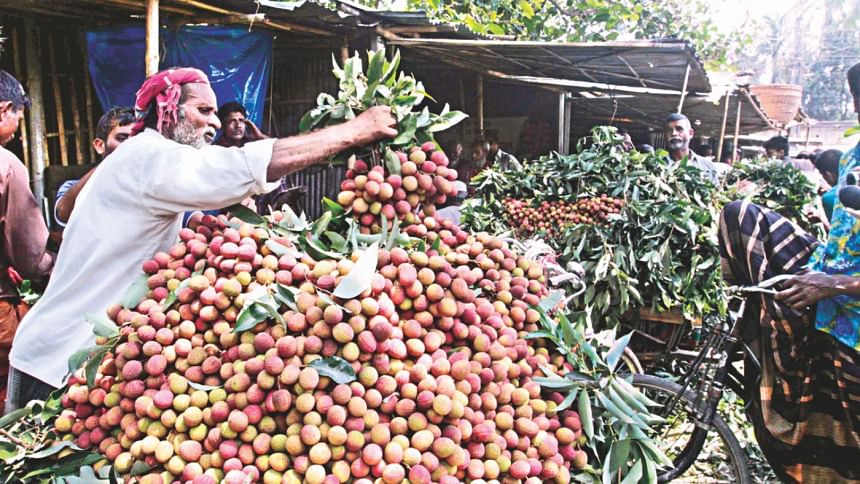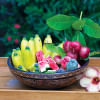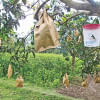Litchis flood Dinajpur

Litchis have hit the markets in Dinajpur and the price is also within the reach of the lovers of this juicy fruit.
According to local traders and orchard owners, this year litchis have flooded the district's lone wholesale market in Kalitola area of Dinajpur town earlier than they did last year.
Litchis are being plucked early as the growers fear that the fruit would be attacked by pests amid the extreme heat and untimely rain.
Traders at several other fruit markets echoed the fruit sellers in the wholesale market.
While visiting the market in Dinajpur town yesterday, this correspondent saw many offloading litchis from vans in bulk for sale.
The varieties of the fruit include Madraji, Bedana, Kathali and China-3.
Trader Babul Hossain said 100 pieces of Madraji litchis were being sold for Tk 80 to 150. It was around Tk 200 last year.
The price of 1,000 pieces of the other varieties ranged between Tk 6,000 to Tk 8,000.
The traders hinted that the price might go up in the upcoming days.
Litchi growers say Dinajpur was producing more and more litchis every year.
According to officials of Department of Horticulture in Dinajpur, litchis are being grown on 4,733 hectares of land this year.
It has been noticed that the areas where litchi trees are planted are widening every year, said Golam Mostafa, deputy director of Department of Agricultural Extension in Dinajpur.
“You can find litchis at many places of Bangladesh but those of Dinajpur are something different. They have an exceptional taste and shape,” said Golam Mostafa, a fruit trader who went to the wholesale market from Chittagong.
He already sent four trucks loaded with the mouth-watering fruit to the port city.
Litchis are grown almost everywhere in Dinajpur. However, the litchis of Mashimpur in Dinajpur Sadar upazila and Madhabbati and Robipur in Biral upazila are extremely tasty, said Imrul Ahsan, a horticulture expert who works at the agricultural extension department.
He also said the department trained 810 litchi farmers how to grow the fruit without using pesticides.

 For all latest news, follow The Daily Star's Google News channel.
For all latest news, follow The Daily Star's Google News channel. 








Comments